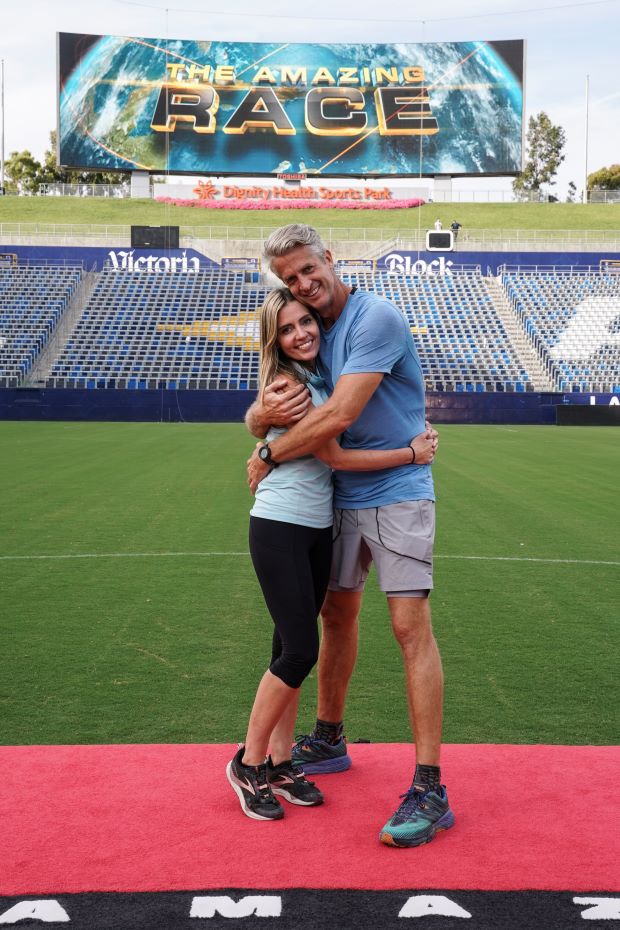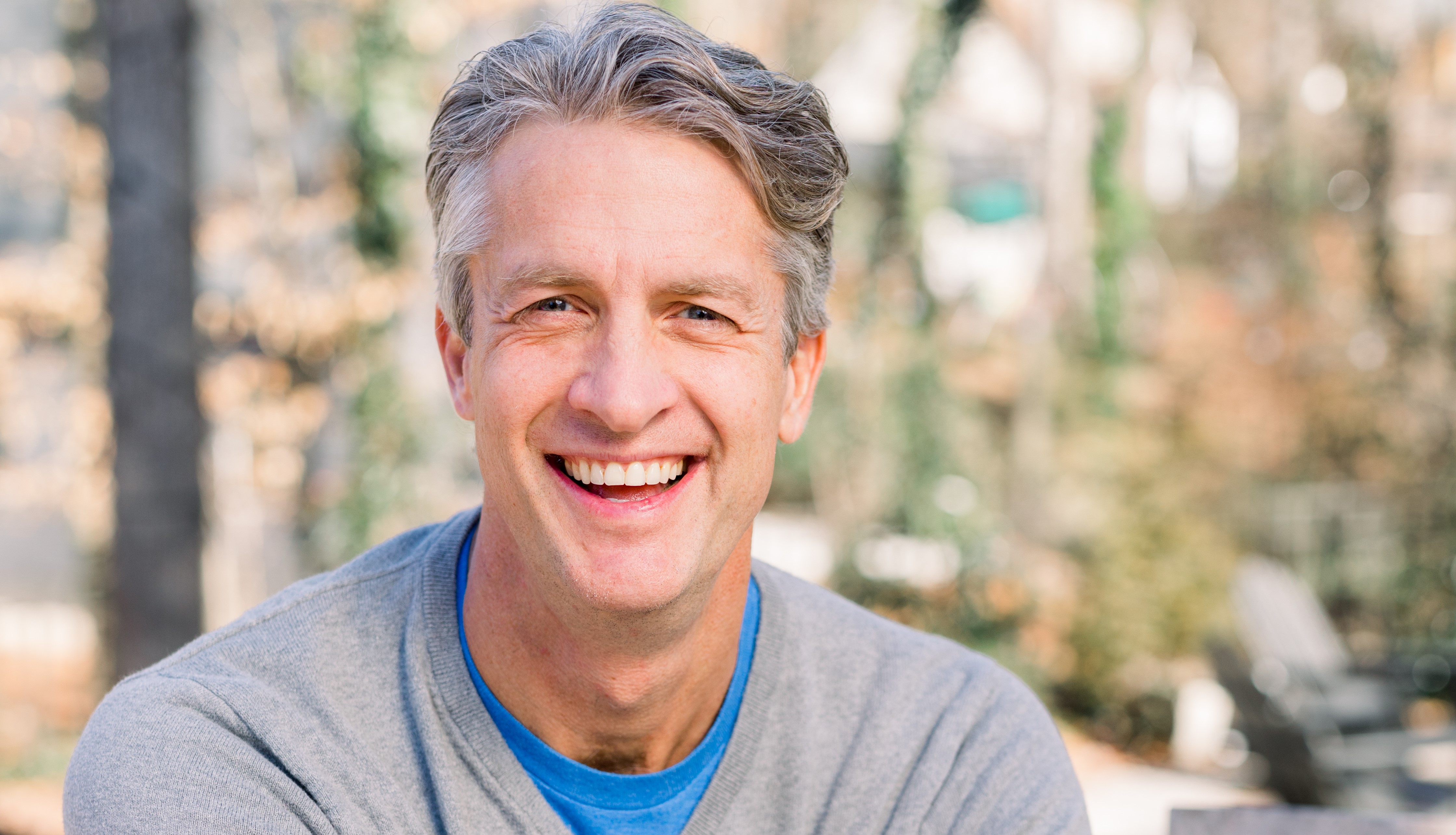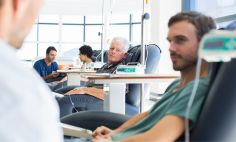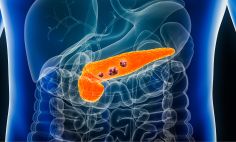Health Topics

Taking on the stigma of ADHD
'The Amazing Race' winner Penn Holderness explains how his mind works in unique ways
Penn Holderness and his wife Kim made history last year by becoming the oldest contestants ever to win the long-running hit TV show, The Amazing Race. Holderness, a songwriter, YouTube video producer, and internet personality, attributes this success at least in part to being one of the millions of Americans with attention-deficit/hyperactivity disorder (ADHD). Holderness is a vocal advocate for those with ADHD and uses his online videos to poke fun at the negative stigma associated with the condition. He recently spoke with NIH MedlinePlus Magazine about life with ADHD and his efforts to educate others about what it is…and isn’t.
You weren’t diagnosed with ADHD until you were in college. Did it affect you as a child before you were diagnosed?
I was diagnosed back in 1995 when I was 20. But I was absolutely aware that something about me was different at an earlier age. I remember there were times as a child when I would get upset and lose control of my emotions. I was curious and interested in school, but it was frustrating for me when I couldn’t focus. I needed coping mechanisms, like sitting in the front row, or I would space out. When it came to tests and homework, I was pretty smart and pretty fast, but I made a lot of careless mistakes. And I forgot a lot of stuff. When I was 16 and got my first car, my dad gave three sets of extra keys to my three best friends. He knew I would lose or misplace them. So my parents were coping, too. And they didn’t know what ADHD was.
What led to you getting the ADHD diagnosis?
I didn’t know what ADHD was until I took an abnormal psychology class in college. It was pretty clear to me when they talked about it that I had some of the traits.
And there were some other clues at about the same time. At a family gathering after my grandmother’s funeral, I was deep in thought about her and my childhood. In the midst of it, my aunt said to me, “I’m sorry, Penn? Would you please take that flyswatter out of your mouth?!” I had been chewing on a used flyswatter that I didn’t even realize I had in my hand. That was the first time I thought, “I am an adult, and this is highly unusual.”
So I set up an appointment to get evaluated, and that is when I got diagnosed.
What was your reaction to getting the diagnosis?
I wasn’t surprised, but I was a little angry. "Attention-deficit/hyperactivity disorder”—it was so many negative words in a row. It sounded so grave and serious. Even hearing the term “disorder” hurt me. I was a student at the University of Virginia. I graduated second in my class in high school. I was a functional and fairly successful human being—it hurt.
On the other hand, getting diagnosed was also a relief. It helped explain what was going on because I was struggling more with schoolwork in college. There was no way to sit in the front of every class when there were 500 students in a class.
The diagnosis also helped with my relationships. None of my close friends were surprised to hear about it. In fact, I think they were relieved. I would tune people out from time to time and not really be aware of it.
You took medication for a short time; would you talk about that?
I was prescribed and took a medication called dextroamphetamine for about a year and a half after I was diagnosed. It had some positive effects: My friends noticed an improvement in my ability to hold a conversation. And my grades improved. I had my best academic year during my senior year of college.
Personally, it ended up not being for me, so I no longer take dextroamphetamine for my ADHD. But I don’t agree with those who say we don’t need medication for this at all. It is not for everyone, but it is for some people. I realize it definitely makes things better for some people. My view is that you can’t judge anyone else for what they are doing.
How does ADHD affect your day-to-day life?
My biggest challenge day to day with ADHD is when too many things come across my mind at the same time. I am really only able to focus on one thing at a time. So it’s better for me if I can just finish one thing and move on to the next. But life doesn’t work that way.
Here’s an example: I wake up in the morning and I turn on the stove to make breakfast for my kids. I realize that I also have a conference call and have to get the kids to school. We get in the car…and I have left the stove on…and everything is burning. I have actually left the stove on a couple of times. But if you know this about yourself, you develop coping mechanisms. Now I set an alarm. If I know I need to make lunch for my son, I do it the night before. That way I can wake up and do one thing at a time.
On the positive side, I’m a songwriter, editor, and producer of creative content. My team will have a meeting and develop an idea for a video to put on the internet. I can hear an idea, then creatively figure out how it will work, sit down and write it, shoot it with my wife, and have the video posted, all within a few hours. It’s because that is the one thing I have to do. And when I can focus heavily on one single thing, I can be incredibly efficient. The term a lot of people use for that is hyperfocus. With hyperfocus, you do shut out the rest of the world in a lot of ways to accomplish your task.
Paying attention is a whole different struggle. I often let my thoughts wander and miss what someone is saying. I wouldn't call it ignoring people, as it’s not intentional.
You and your wife won The Amazing Race last year. How did your condition affect that?
My ADHD was a huge advantage. That was the most comfortable I have ever been. During the show, you can’t have any outside contact with anyone. I had one single job with my wife—to get to the end of this race. There was one challenge at a time, and that is what my ADHD brain is good at. I would have been in a lot of trouble if The Amazing Race had challenged us to make a four-course meal!

Penn Holderness, right, and his wife Kim won The Amazing Race in 2022.
You have challenged the negative stigma associated with ADHD. Why did you want to speak up about it?
After I was diagnosed, my doctor gave me a book to read about ADHD that I think got it right. The author said that ADHD is not a deficit of attention, but rather an abundance of attention without the ability to put it in the right place. He said people treat ADHD like they treat a broken leg or arm. They ask, “What’s wrong?” and, “How do we fix it?” rather than, “What is different and how do we adapt?” People look at you like you are broken. But we are not broken, we just have different brains.
The second issue is just the name. It labels people negatively, especially kids. Imagine if you are a 10-year-old kid and your doctor tells you that you have a deficit, you have hyperactivity, and you have a disorder. I think ADHD should be renamed; it should not be three negative words in a row.
For a lot of people today, as it was when I was growing up, they see someone with ADHD as spacey, who just needs to do a better job paying attention. The fact is we are trying to do that, but we don’t have the ability with the way our brains handle executive functioning (things like planning and decision-making).
As a result, there is a lot of shame in having ADHD and not a lot of pride—zero pride. I take on this stigma by saying, “Hey, not only am I fine, I’m also having an awesome time with my brain, and my family has taken the time to understand.”
What is your advice to people with family members and loved ones with ADHD or who have the condition themselves?
To those who don’t have ADHD—thanks for listening and being willing to hear our perspectives. Those of us with ADHD are trying harder than you think we are. We are so grateful for any grace you give us when we make mistakes.
To those who have ADHD—don’t be afraid to admit it. Don’t have shame in it. Talk to your family and your health care provider. And don’t suppress the great brain that you have.
Also, don’t ever feel alone. There is a huge community of people who have this and support you. I just want people to know that they are not broken. You are going to be OK.







